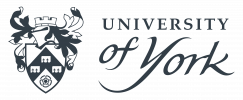© Pint of Science, 2024. All rights reserved.
The rule of law affects all of us in our everyday lives. Tonight we have speakers from the University of York that will talk about their exciting research ranging from human rights, patents in health care, and pub licensing. Come along and find out more, with a pint in your hand!
Pubs, alcohol licensing and ‘vertical drinking’
Dr. Jed Meers
(Lecturer in Law)
Alcohol licensing not only determines where people drink – those physical characteristics of the premises, placement of entrances and exits, capacity, the vicinity, and so on – but also how they drink. One distinction has remained surprisingly resilient throughout the 19th and 20th centuries and into the post Licensing Act 2003 landscape: whether patrons drink standing up or sitting down. This concept of so-called ‘vertical drinking’ is also a target of the alcohol licensing. We use some examples from York’s fine pubs and bars to demonstrate the problem at hand.
A good idea gone bad. Can we still justify patent monopolies?
Dr. Peter Harrison
(Lecturer in Law)
Politicians, economists and lawyers often justify the existence of patents on the basis that they encourage investment in new inventions which are good for society. To what extent is this true? This talk will investigate areas in which the patent system has failed to incentivise the making of inventions that society needs – particularly in the area of pharmaceuticals and healthcare. It will also look at the worldwide abuses of the patent system by rights holders and ask whether we can still justify the existence of patent monopolies.
International civil society and human rights abuse: can the community fight for accountability?
Rhiannon Griffiths
(Researcher)
Despite 70 years having passed since the horrors of the Holocaust were punished, our society continues to live with the realities of war crimes and genocide. With millions of people yet to see justice served, some have fought back through ‘international peoples’ tribunals’. These informal courts may lack legal authority, but by bringing together survivors, lawyers, activists, and even perpetrators – is there yet hope for our society?
Map data © OpenStreetMap contributors.


